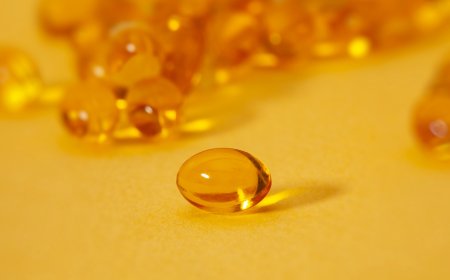Vitamin B1 (Thiamine): Its Importance, Food Sources, and Supplements
Explore the essential role of Vitamin B1 or Thiamine in the body. Learn about the foods rich in this nutrient, the signs of deficiency, and the benefits of Thiamine supplements for overall health.

In the vast world of vitamins, Vitamin B1, also known as Thiamine, holds a special place. This nutrient plays a role in many of our body's vital functions, and knowing more about it can help you make informed choices for your health. Let's explore the science, the foods that boost Vitamin B1, signs of deficiency, and the role of supplements.
Understanding Vitamin B1 (Thiamine)
Vitamin B1, or Thiamine, is a water-soluble vitamin. This means our body doesn't store it, so we need to get it from our food every day. Thiamine helps our body turn food into energy. It's essential for our metabolism and for the health of our heart, muscles, and nervous system.
Vitamin B1-Rich Foods
A balanced diet can provide all the Thiamine we need. Some top foods for Vitamin B1 include:
- Whole grains: Such as brown rice and oatmeal.
- Meat: Pork is especially rich in Thiamine.
- Fish: Trout and salmon are good choices.
- Legumes: Beans, lentils, and chickpeas have Vitamin B1.
- Seeds and nuts: Sunflower seeds and macadamia nuts are excellent sources.
By including these foods in your diet, you'll help support your body's Thiamine needs.
Spotting Vitamin B1 Deficiency
Even though Thiamine is in many foods, some people don't get enough. A deficiency can cause weakness, fatigue, nerve damage, and heart problems. Severe deficiency can lead to a disease called beriberi. It's rare but can be very serious. If you think you might not be getting enough Vitamin B1, it's important to talk to a healthcare professional.
Vitamin B1 Supplements: Are They Needed?
For most people, a balanced diet provides enough Thiamine. But some may benefit from supplements. This includes people with certain health conditions or those who don't get a varied diet. Supplements can help fill the gap. If you're thinking about taking a Thiamine supplement, it's best to get advice from a health professional first.
In conclusion, Vitamin B1 or Thiamine is a powerful nutrient. It helps our body make energy, keeps our muscles and nerves healthy, and supports our heart. By knowing more about this vitamin, its food sources, signs of deficiency, and supplements, you can make the best choices for your health. Remember, every vitamin plays its part in keeping us at our best, and Vitamin B1 is no exception!
Disclaimer: The image(s) featured in this article are for illustrative purposes only and may not directly depict the specific concepts, situations, or individuals discussed in the content. Their purpose is to enhance the reader's understanding and visual experience. Please do not interpret the images as literal representations of the topics addressed.
What's Your Reaction?











































































































